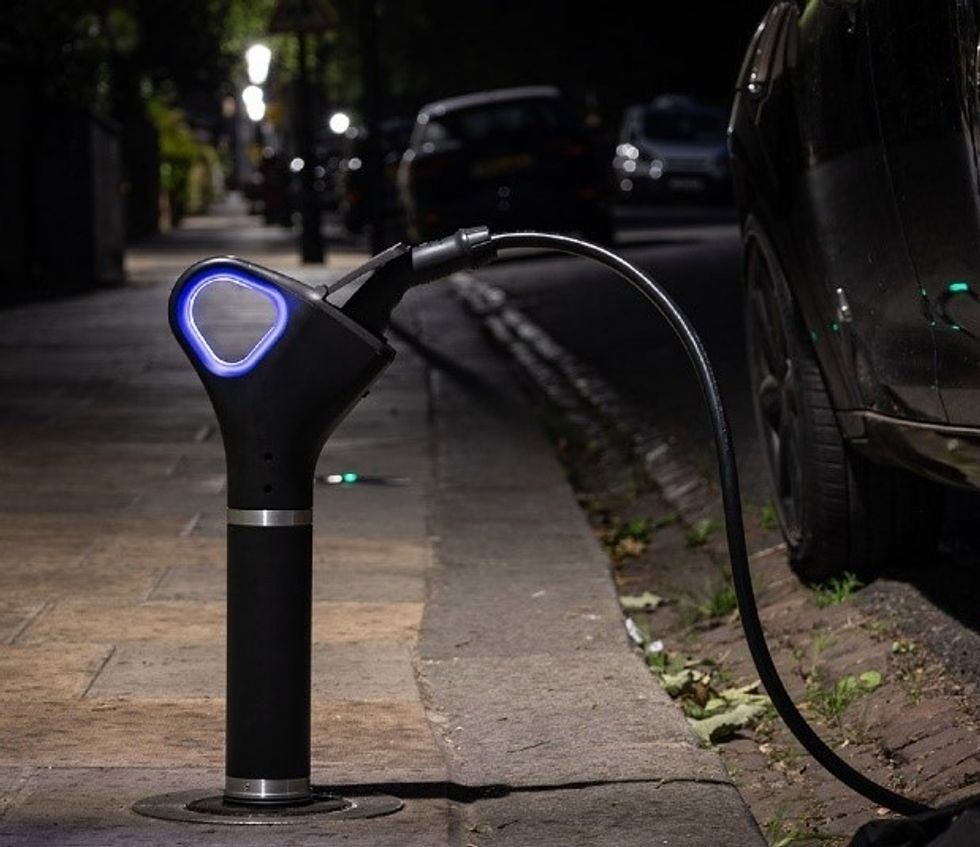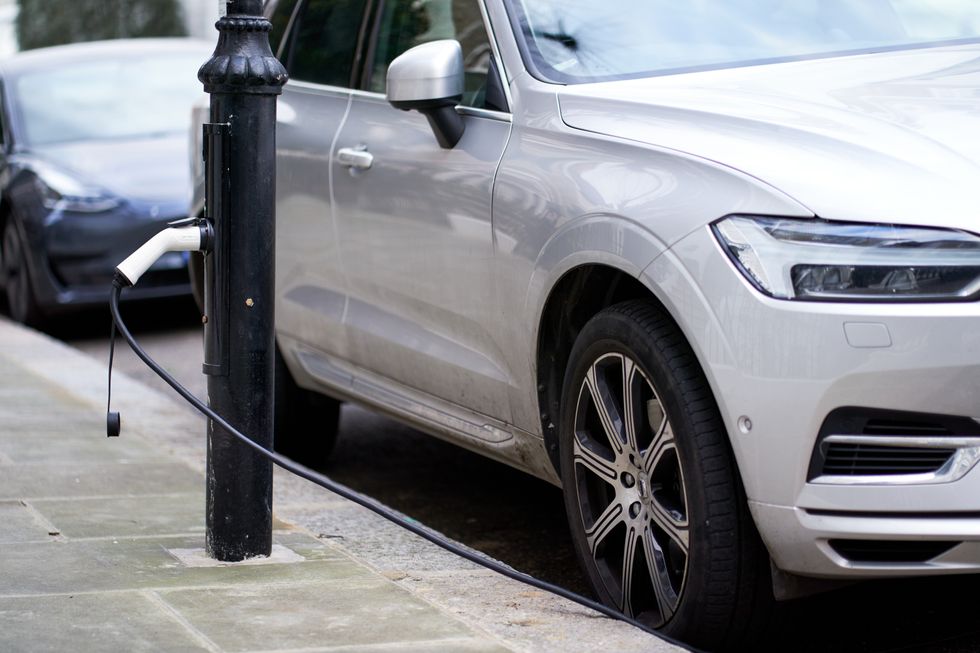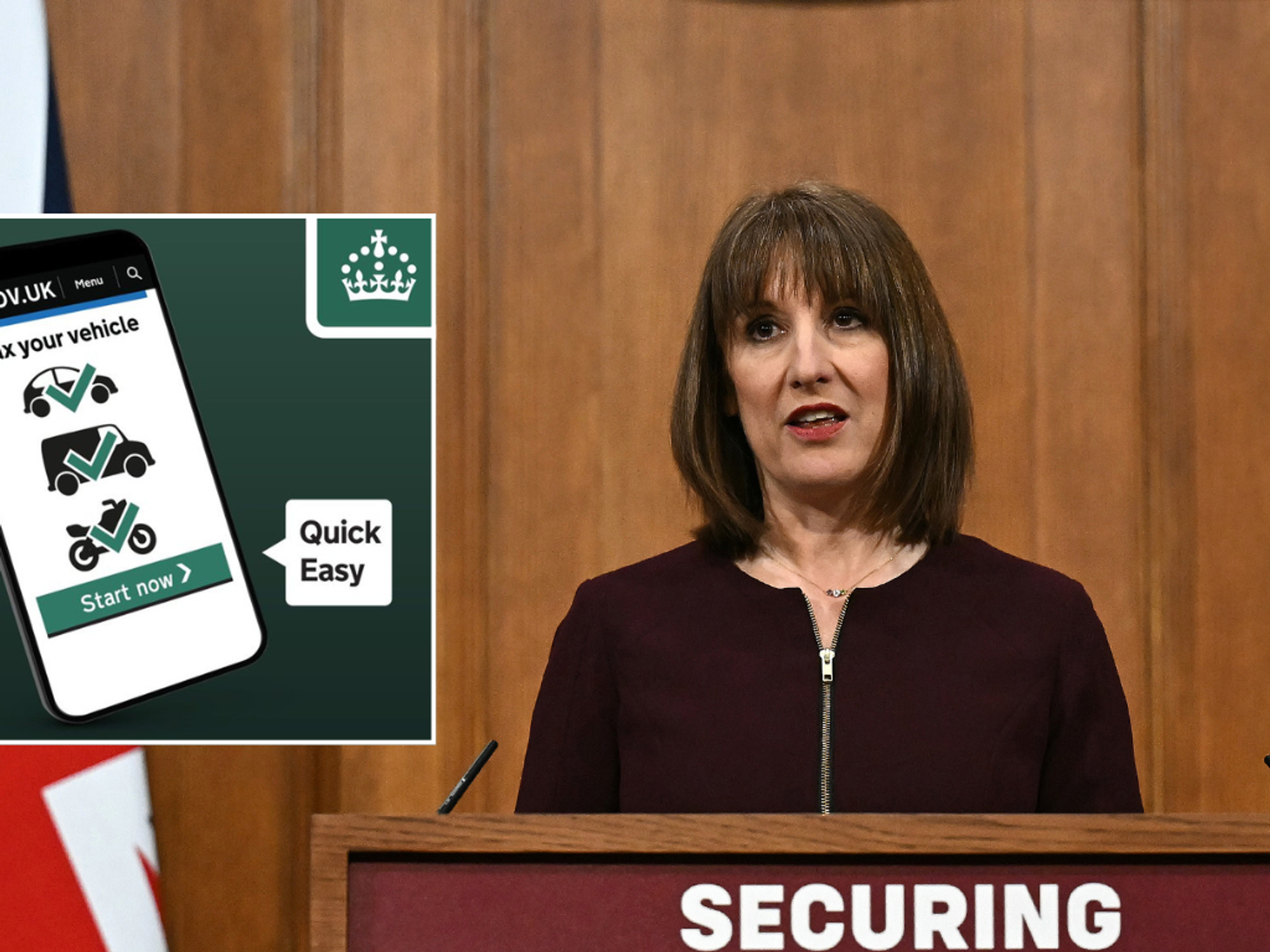WATCH: The Department For Transport announces measures to make it cheaper to install electric chargers
DEPARTMENT FOR TRANSPORT
The new guidance aims to increase the uptake of electric vehicles across the UK
Don't Miss
Most Read
Trending on GB News
Drivers will soon be able to benefit from more incentives to purchase an electric car after the Government pledged to boost the number of charge points.
The push towards electric vehicles follows new Government guidance released earlier this week which hopes to encourage more local authorities to roll out EV chargers.
Documents from the Department for Transport outline how councils can implement cross-pavement solutions, which allow EV cables to safely pass across or through pavements to connect home chargepoints with vehicles parked on the street.
Local authorities will have the final decision on whether to permit installations in their areas, with the guidance helping them consider factors such as pavement width, safety requirements and maintenance responsibilities.
Do you have a story you'd like to share? Get in touch by emailingmotoring@gbnews.uk

There is significant charging disparity between London and the North of England
GOV.UK
The cross-pavement charging market is currently in its early stages, but several local authorities have already successfully trialled different installation approaches.
The guidance outlines two main types of cross-pavement charging solutions currently being trialled across England. The most common approach uses cable channels, also known as gullies, embedded within the pavement.
These systems temporarily house the charging cable while the vehicle is being charged, with the cable removed once charging is complete.
The second option involves permanent charging cables laid beneath the pavement, connecting domestic charge points through removable bollards or lance connectors to reach the vehicle.
Local authorities must ensure any installation meets construction, safety and accessibility standards before approving apparatus on public highways, the report detailed.
While temporary solutions like cable covers or mats that create small ramps are available, these are not specifically covered in the new guidance, though councils may use it to inform decisions on permitting their use.
Local authorities can access funding for cross-pavement solutions through the Local Electric Vehicle Infrastructure (LEVI) Fund, which aims to transform charging availability for drivers without off-street parking.
The LEVI Fund is expected to deliver thousands of local charge points across England, ensuring EV transition happens in every region.
Nottinghamshire County Council has already benefited from LEVI funding, receiving support in January 2023 to trial up to 300 cable channels.
Under the scheme, the funding covers the installation of highway cable channels, while householders remain responsible for purchasing and installing their domestic charge points.
Residents installing cross-pavement charging solutions can benefit from significantly lower charging costs by accessing domestic electricity tariffs.
The Government is also offering grants of up to £350 or 75 per cent of the total cost of installing a charge point for EV users who have local authority permission for cross-pavement solutions.
LATEST DEVELOPMENTS:
- Mercedes to keep making diesel cars despite Labour pushing for 2030 ban - 'It would not make sense'
- Major council rakes in millions from fining petrol and diesel drivers in 'stealth taxes' - 'Get rid of it all!'
- UK to see rapid rollout of electric vehicle chargers with new rules ahead of petrol and diesel car ban

On-street chargers can cause safety problems for pedestrians
PASome local authorities, like Milton Keynes City Council, have developed services where residents pay an initial fee and annual maintenance charges, while others work with suppliers who retain ownership and charge subscription fees.








